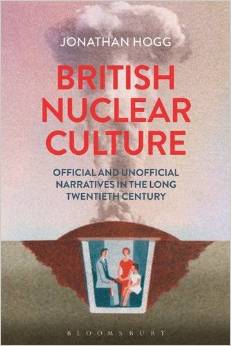Last Friday, April 10, the Centre for the Study of Modern Conflict at the University of Edinburgh played host to a workshop on ‘Interdisciplinary Perspectives on Nuclear Identity’. This formed part of an ongoing series of workshops under the auspices of the British International Studies Association’s Global Nuclear Order Working Group. I was delighted to be able to organise this very stimulating and interesting session that brought together faculty, postgraduates, and practitioners from across the UK.
The aim of the day was to discuss and debate various interpretations of ‘nuclear identity’ and how the work we are doing in our different disciplines can fruitfully be shared. One of the main aims – for me certainly – was to grapple with how we understand ‘identity’ and how do we analyse it in our different disciplines and across disciplinary boundaries. In regard to this, I was struck by how much common group we all shared, whether working in history, political science, international relations, or within the nuclear establishment itself.


